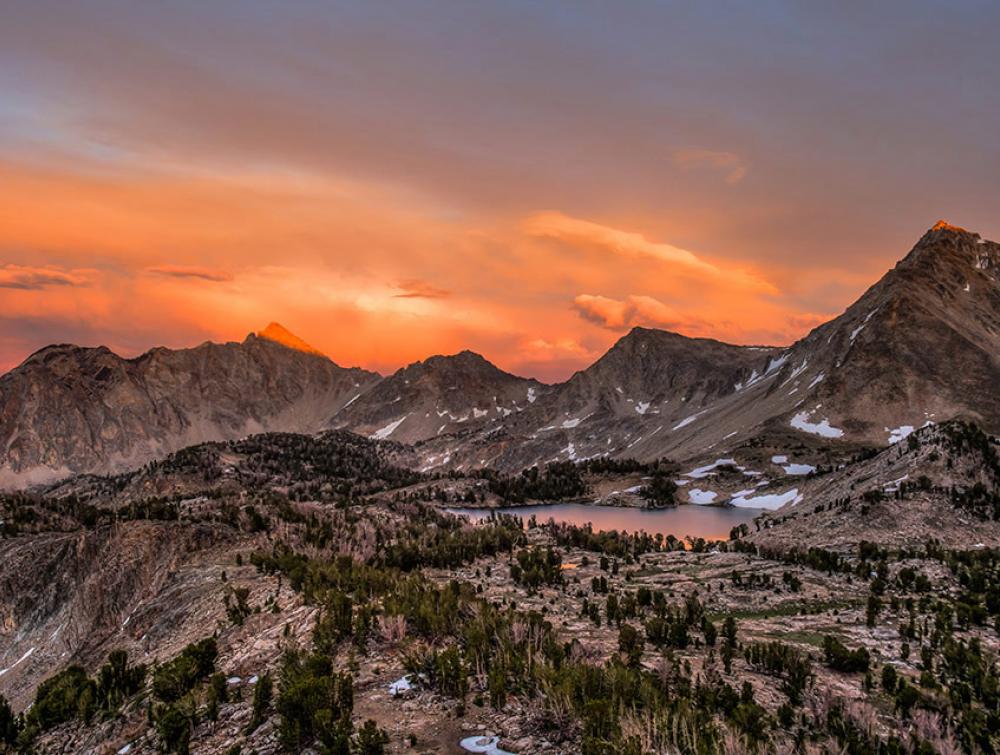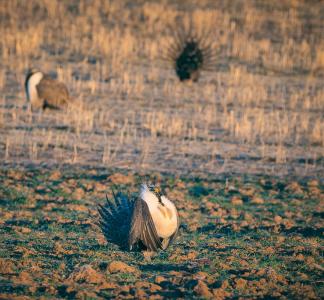Report: Idaho has sold off 1.7 million acres of land to private interests

Boulder-White Clouds, Idaho
Ed Cannady Photography
The land sale is a portent of what could happen if special interests are allowed to seize public lands
A Wilderness Society report shows that Idaho has sold off about 1.7 million acres of land for development—a portent of what could happen if special interests are allowed to seize national public lands in the state.
According to the report, Idaho’s 1.7 million acres of sold-off state lands have included more than 100,000 acres sold since the year 2000. In many cases, these sales have cut off public access to cherished outdoor recreation spots or even allowed lands to become industrialized.
The findings serve as a repudiation of politicians who want Idaho to seize national public lands but deny that this will lead to these landscapes being privatized or sold off to corporations.
“National forests and other public lands are a cornerstone of Idaho’s heritage. They’re the places where we hunt, fish, camp, hike, bike and where many Idahoans make a living,” said Brad Brooks, The Wilderness Society’s Boise-based deputy regional director, in a statement. “History is clear on what will happen if our national public lands are given to the state. They’re almost certain to end up in hands that will lock the public out.”
Tools & Resources
Key findings:
- Since it gained statehood in 1890, Idaho has given more than 1.7 million acres of state lands away to corporations or other private interests—41% of its original territory.
- On average, Idaho has sold off 13,500 acres per year.
- By acreage, the most common buyers of these state lands: timber companies and livestock interests.
Data suggests “land takeover” is a threat to outdoor access in Idaho
Across the West, a dangerous movement is trying to seize public lands like national forests for state control. Once under state control, these lands will be managed for maximum revenue due to Idaho’s constitutional mandate—which can mean being sold off to commercial interests. Our report illustrates that Idaho has a 100-year track record of liquidating lands it owns, resulting in lost access for the public.
This is a radical idea, and also one that affects people in a tangible, everyday way—by reducing their freedom to access these lands for hunting, fishing, camping and other outdoor recreation. Our report offers one potent example of the kind of situation this could create: a tract of land near Yellowstone National Park was sold and became a members-only fishing resort, closing off public access to one of the state’s best trout streams, the Henry’s Fork of the Snake River.
Some politicians in Idaho’s legislature are pushing for the state to take over national public lands while claiming that public access to these places would not be affected by such a seizure. These findings deliver one message loud and clear: you shouldn’t believe them.
State land takeover goes against Idahoans’ wishes
The strategy of conveying lands to the highest bidder does not work for Idaho. Nearly three-quarters of Idaho residents [PDF] participate in outdoor recreation each year, helping to support a “recreation economy” that generates $6.3 billion in consumer spending for the state. Idaho’s 33 million acres of public land are vital to this way of life, as is public access to them. According to polling, 73 percent of Idaho voters agree that one of the things our federal government does well is protect and preserve public lands. A majority of Idaho voters opposed having state government assume this responsibility.
The bottom line: transferring public lands to state control is bad move that prioritizes short-term economic gain over outdoor access and Idaho's natural heritage.


